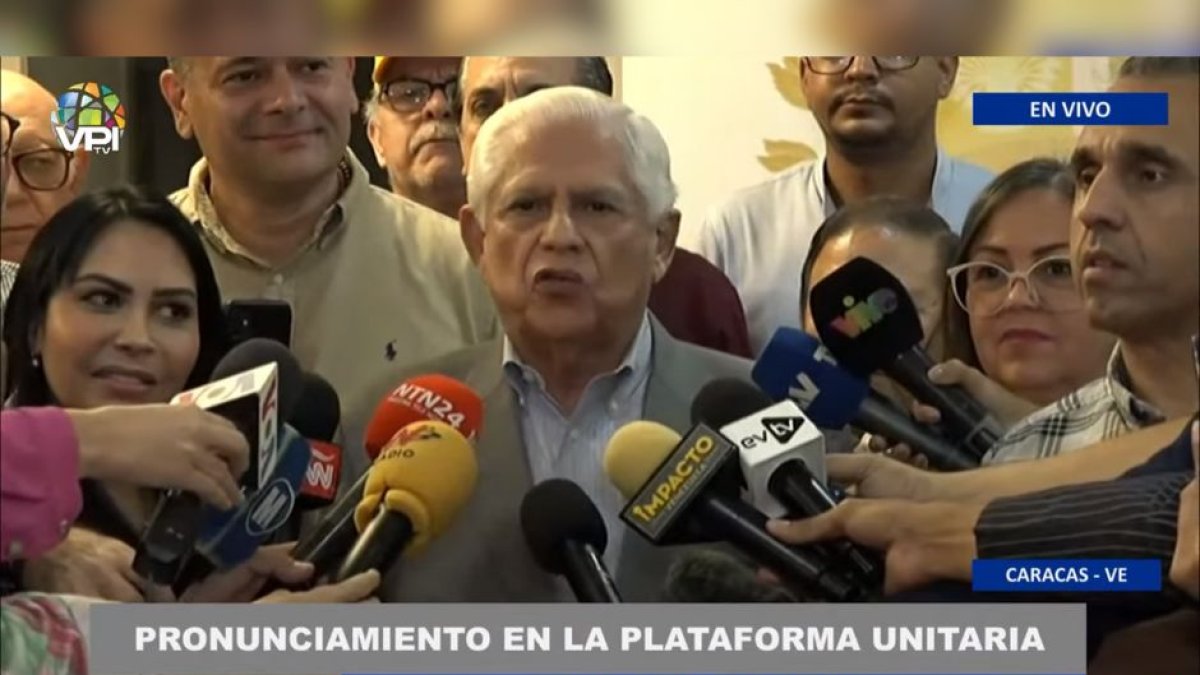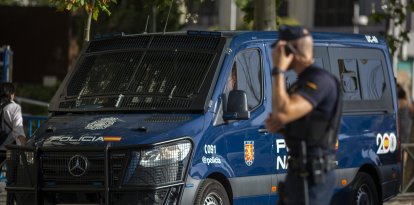Venezuela: the opposition agrees to go to the presidential “elections” with a low-profile diplomat who managed to pass the Chavista filter
This is Edmundo González Urrutia, who received the support of the entire Democratic Unitary Platform, including the opposition leader María Corina Machado.

Omar Barboza, secretario de la PUD, anunció la candidatura de
After weeks of intense negotiations, the Venezuelan opposition managed to finalize a presidential candidate supported by the entire Democratic Unitary Platform (PUD): former ambassador Edmundo González Urratia.
Omar Barboza, general secretary of the PUD, confirmed the nomination before the press.
“Venezuela and the democrats of the world, I want to give very good news to the people of Venezuela, the Democratic Unitary Platform has just unanimously approved the candidacy of Ambassador Edmundo González Urrutia as the unity candidate, supported by all factors,” said Barboza.
González Urrutia, 74, did not accompany Barboza during the statement.
González’s election comes before Saturday, when the deadline for an opposition candidate to appear on the ballot expires. Now, the ball is in the court of the Nicolás Maduro regime and the electoral authorities controlled by Chavismo, who must decide whether to disqualify the new opposition candidate on duty or let him participate in “elections” questioned due to the lack of guarantees.
Until now, Chavismo has been reluctant to accept an opposition candidate for the presidential elections on July 28. The electoral authorities disqualified María Corona Machado, the country’s main opposition leader, and her replacement candidate, academic Corina Yoris, who was disqualified by the regime despite having no political history and maintaining a low profile.
In that sense, González Urratia is similar to Yoris since he is a low-profile diplomat who was registered by the opposition ‘in extremis’ in March as a substitute candidate who was actually saving the position for another person.
Finally, given the difficulty of finding a viable candidate within the opposition to replace Machado, the opposition managed to agree that the best option was to go with a low-profile candidate who is far from the political class and will not diminish the strength of Machado, who has led the opposition since she won the 2023 opposition primaries with more than 90% of the votes.
Daniel Chang, a Venezuelan political scientist based in Washington, D.C., told Voz Media that the opposition’s decision to go to the elections with González Urratia was an interesting and astute move.
“It is a smart move by María Corina Machado and the PUD. Edmundo is already registered in the CNE, Chavismo has to spend political capital if it wants to disqualify him. Edmundo’s candidacy has many difficulties, the main one being the fact that he is unknown in public life, but it is a clever move by the opposition,” said Chang, who also highlighted that another positive detail about González is that his lack of political experience generates more confidence with respect to other traditional opposition politicians such as Governor Manuel Rosales, who flirted with a candidacy until he decided to give up.
The political party led by Machado, Vente Venezuela, published a message regarding Urratia’s appointment:
“Today, by unanimous decision, the democratic forces represented in the Unitary Platform chose Ambassador Edmundo González (@EdmundoGU) as the candidate of Venezuelans,” the party said on its account on X (Twitter). “We celebrate this decision and thank Venezuelans for their trust.”
Vente Venezuela also warned that its leader Machado “will send a message to the country” in the next few hours.
In recent months, the members of Vente Venezuela and Machado herself have suffered intense harassment and persecution by the Maduro regime.
The Chavista dictatorship, without any evidence, orchestrated several judicial processes for “conspiracy” against Machado’s main collaborators.
The Maduro regime, in addition to attacking Machado and the opposition, has also intensified its persecution of journalists, activists and human rights defenders. This situation pressured the Biden administration and forced the White House to reimpose the oil sanctions that it had eased on Venezuela last October.

























